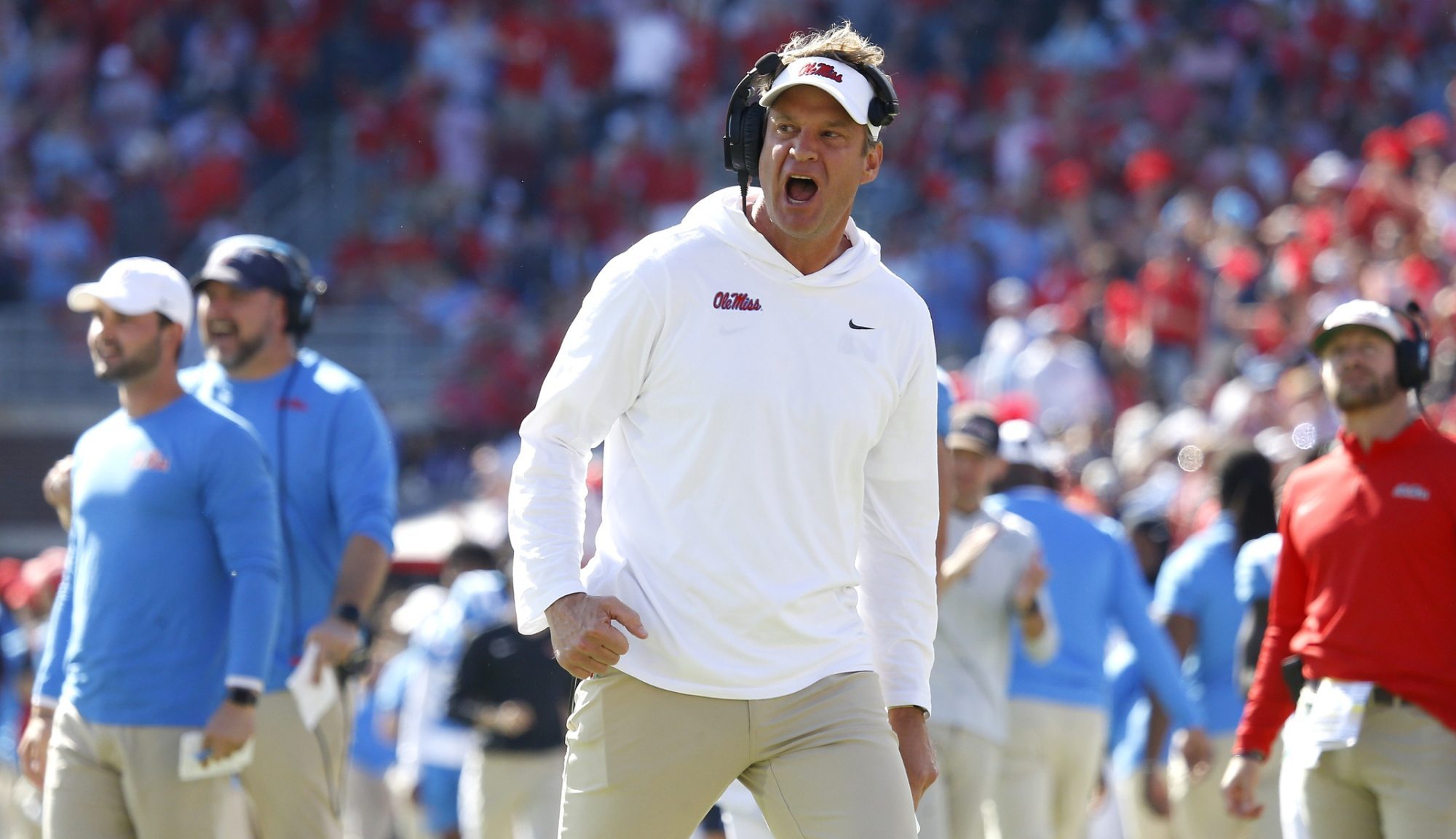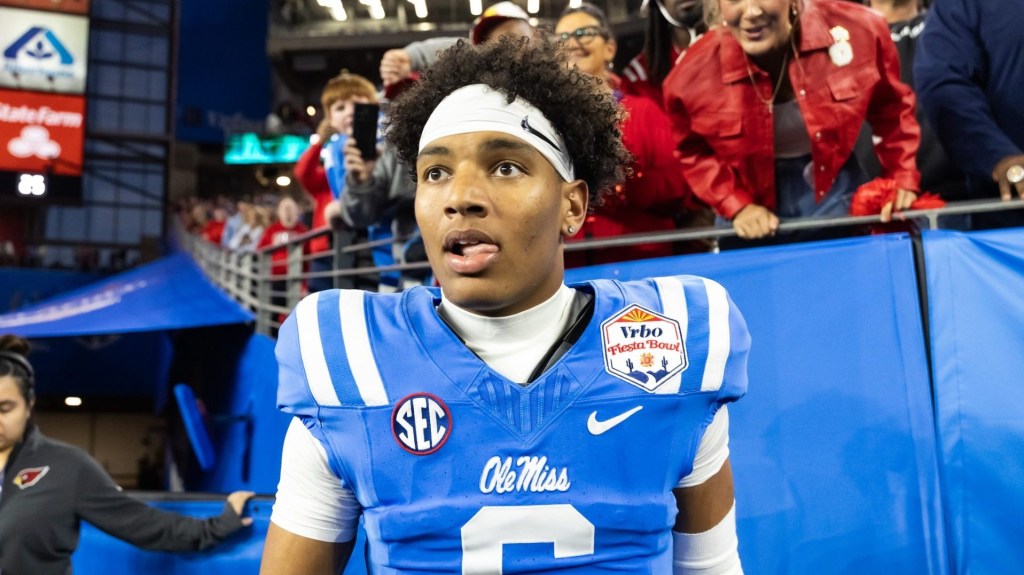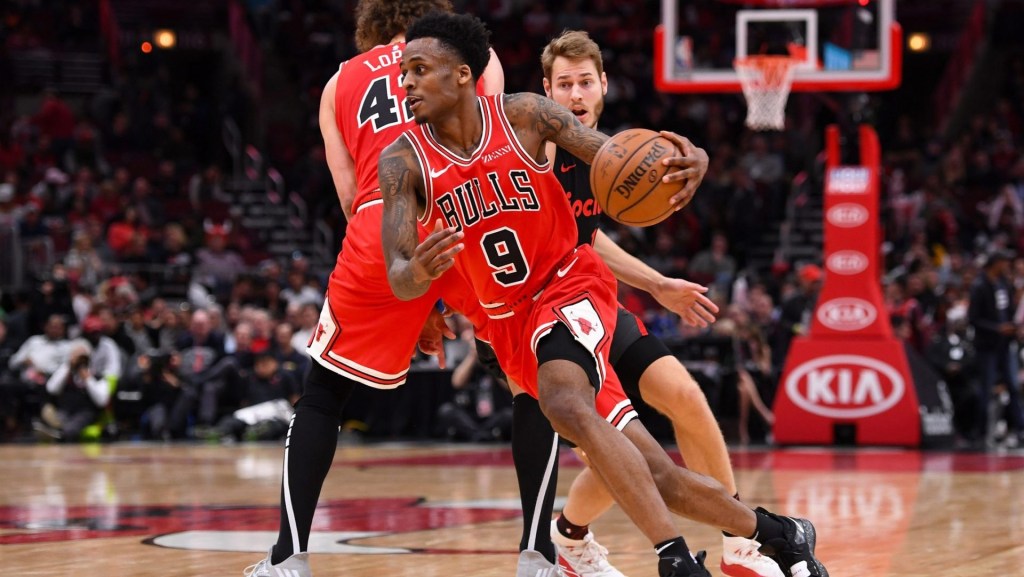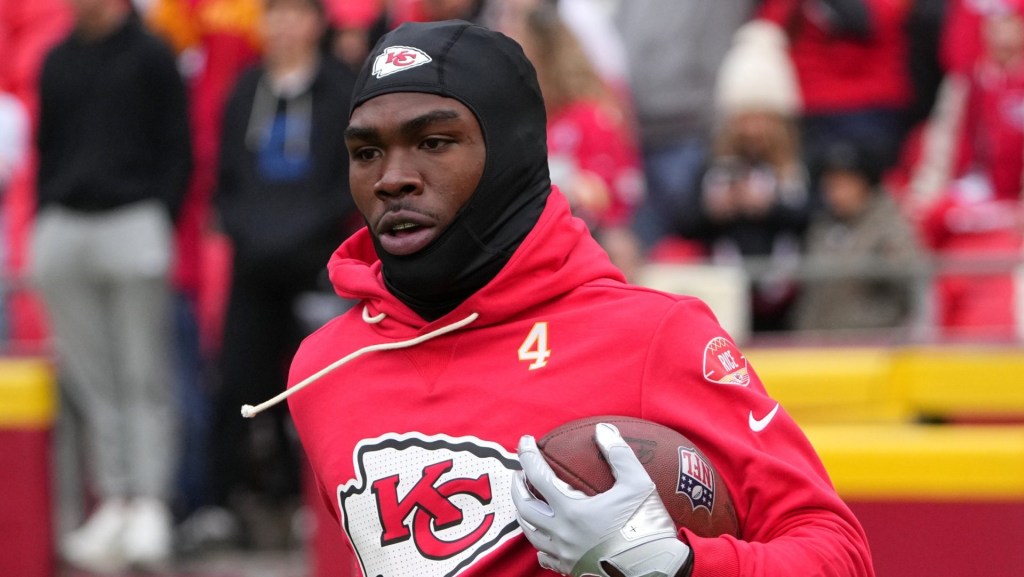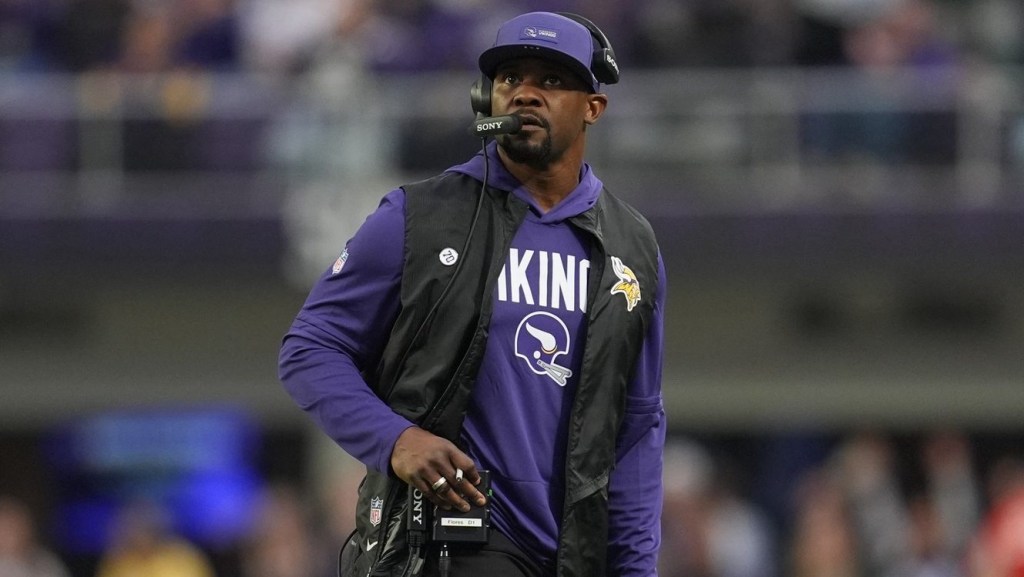In a motion filed on Wednesday, lawyers for Lane Kiffin and Ole Miss laid out a half-dozen reasons why the lawsuit filed by a Rebels player in September should be dismissed.
DeSanto Rollins, who remains on scholarship at the school, alleged in the federal lawsuit that seeks $40 million in damages that Kiffin “ignored” indications Rollins suffered from depression and subjected Rollins to “grossly reckless, and indifferent” treatment.
“Plaintiff has not alleged Kiffin treated him differently than other similarly situated individuals, much less that he did so with discriminatory intent because of Plaintiff’s race or sex,” attorneys Paul B. Watkins, Jr. and Walter G. Watkins, Jr. wrote in a brief in support of the motion to dismiss.
Those “similarly situated individuals” that Rollins alleged in the lawsuit include “a white football player,” “white female softball players,” and “female volleyball players” who allegedly didn’t face punishment for taking mental health breaks.
“Plaintiff does not allege Kiffin coached these volleyball or softball student-athletes or was involved in decisions about their alleged ‘mental breaks,” the lawyers wrote in the motion to dismiss. “Kiffin, in his individual capacity, cannot be said to have discriminated against Plaintiff absent such facts.”
At a Feb. 27 meeting, Rollins alleged that Kiffin was upset he didn’t enter the transfer portal after the 2022 season. He said he was “being moved from his defensive tackle position to the scout team on the offensive line.” Rollins said he told Kiffin at the end of the meeting “he was going to take a mental health break.”
Rollins’ mother contacted Ole Miss athletic trainer Pat Jernigan after the Feb. 27 meeting, and told Jernigan her son “was suffering a mental health crisis,” according to the lawsuit.
Rollins said he was suffering from depression following an injury last season that was compounded by the death of his grandmother. He was next to his grandmother as “she drew her last breath.”
According to the motion to dismiss, defensive line coach Randall Joyner told Rollins to meet with Kiffin on March 1. Josie Nicholson, Ole Miss’ assistant athletic director for sport psychology, told Rollins on March 7 that Kiffin wanted to meet with him.
“Rollins did not want to meet with him yet because he was not in a good place,” according to the lawsuit.
That meeting didn’t take place until March 21, leading to a contentious exchange that was transcribed in the lawsuit.
“You have a f—ing head coach,” Kiffin said. “This is a job. Guess what? If I have mental issues — and I’m not diminishing them — I can’t not see my f—ing boss, when you were told again and again the head coach needs to see you.”
Front Office Sports exclusively obtained the audio recorded by Rollins. Warning: Contains strong language. The conversation begins at the 26-second mark.
“There is no statutory duty for a football coach to manage his team roster or speak to his players in any particular way,” the lawyers wrote in the motion. “To the contrary, Mississippi courts have recognized that coaching decisions are largely discretionary because ‘coaches know their players and must be able to control their teams.’ Nor has Plaintiff identified a legal duty to ‘have written institutional procedures for routine mental health referrals.’”
Messages left with Ole Miss, and the lawyers representing the school and Kiffin were not returned.
Rollins, who is Black, alleged he was denied his 14th Amendment rights of equal protection. Ole Miss’ lawyers wrote that Kiffin couldn’t be the target of such an allegation as an individual.
Lawyers for Ole Miss and Kiffin also claim that Rollins’ claim that rights under Title IX were violated should be dismissed because Rollins “may not seek reputational or emotional distress damages for his claims under Title VI, Title IX, and the Rehab Act.”
The lawyers also wrote that Rollins’ negligence claim against Kiffin can’t be pursued in federal court because of the Mississippi Tort Claims Act.
